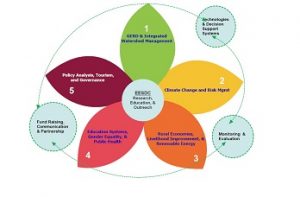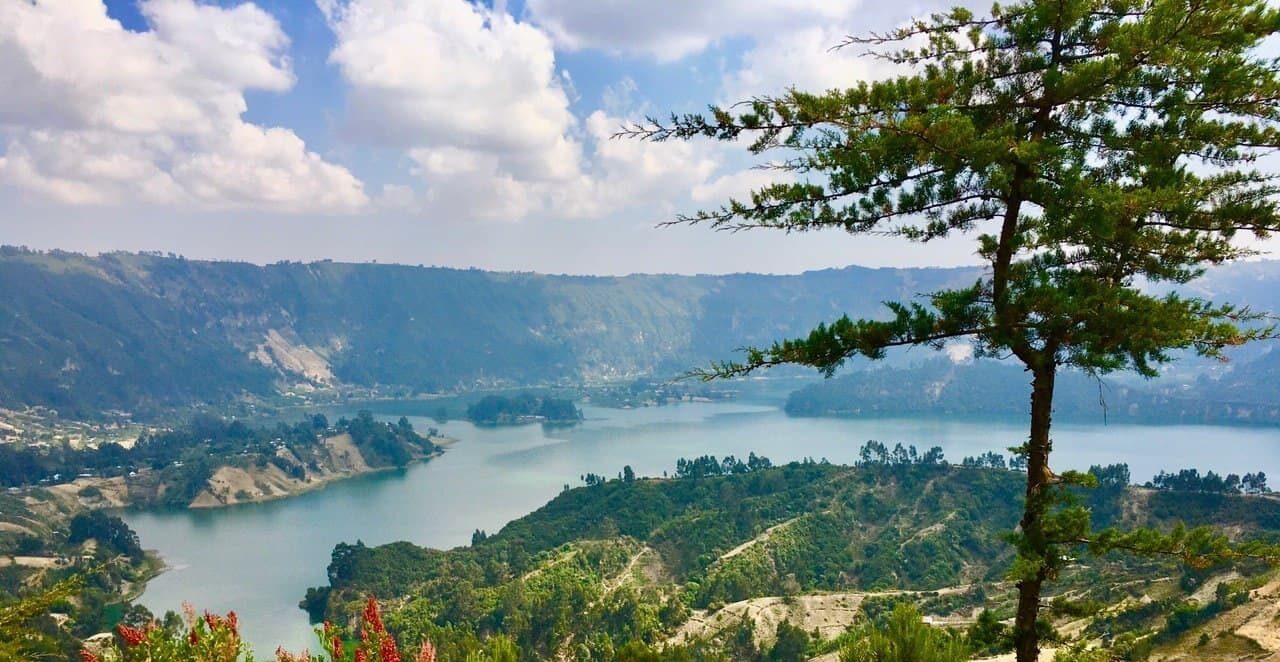
1. Integrated Natural Resource Management
Subgroup A: GERD
- The Grand Ethiopian Renaissance Dam (GERD)
- Other Hydro Dams
- Tana Biosphere Restoration and Water hyacinth control
- Lake Tana restoration, Water hyacinth removal
- Riparian Restoration
- Soil and Water Conservation. Silt removal, Gully rehabilitation
- Payment for Ecosystem Services
- Ecotourism and Protecting Monasteries
Subgroup B: Integrated Watershed Management
- Rivers, Lakes and Other water bodies and their Catchment Restoration
- Watershed management and empowerment of farmers.
- Ecosystem Restoration and Management
- In-Cities/Urban Flowing Rivers Cleaning and Embankment Landscaping.
- Desertification and Land Restoration
- Integration of Agriculture, Forestry, Fisheries, and Urban Development
- Green Legacy Initiative
2. Climate Change and Risk Management
- Climate-Resilient Green Economy – climate-smart agriculture
- Mitigation and Adaptation – REDD+, CDM,
- Payment for Ecosystem Services and carbon trading
- National climate change action plan or adaptation plan – review and implement.
- Biodiversity and Biosystematics
- Lead Part of The Great Green Wall of Africa
3. Rural Economies, Livelihood Improvement, and Renewable Energy
Subgroup A: Sustainable Agriculture and Food security
- Food and nutrition security and Sustainable Agriculture, Irrigation, and water banking (harvesting)
- Identify sustainable on-farm and off-farm development strategies & Productive Employment opportunities
- Consider population growth, climate change, regional and global trade.
- Rural product processing, market chain development, Agroforestry, Fisheries,
- Small to Medium Scale Agro-industries.
Subgroup B: Renewable Energy and Socio-economic Transformation
- Rural electrification – access to affordable, reliable, and sustainable energy (reduce dependence on biomass)
- Modernize the economy – integrated agro-industrial parks and beyond.
- Transform transport services – electric cars, rail transport,
- Youth Participation. Boost Investment, including foreign direct investment (FDI), and decent employment for the youth.
- Solar Power and Energy Storage Systems
- Wind and Geothermal
- Impact climate change and natural resource conservation
4. Education Systems, Gender Equality, and Public Health
Subgroup A: Transform Education
- Transform education, gender equity, and Equitable access to education.
- Environmental Education and Public Health
- Indigenous knowledge
- Quality Education in Universities – centers of innovation,
- Public health, nutrition, and food chain
- Medicinal Plants and Trees
- Water, sanitation, and hygiene (WASH)
- Leadership, Ownership, and Outreach
Subgroup B: Gender Equality and Empowering Women and Girls
- Eliminate all harmful practices, such as child, early and forced marriage, female genital mutilation, and all forms of violence against women and girls.
- Ensure universal access to sexual and reproductive health and reproductive rights as agreed by the international community.
- Ensure women’s full and effective participation and equal opportunities for leadership at all decision-making levels in political, economic, and public life.
- Leadership and Outreach
- Introducing or upscaling locally available women-based businesses.
5. Policy Analysis, Tourism, and Governance
Subgroup A: Sustainable Resource Policy and Governance
- Land tenure (includes forest tenure) and land use policies.
- Environmental impact assessment guidelines and regulations,
- Conflict management and resolution – peace and stability
- Coordinate stakeholders, including government, private sector, NGOs, community organizations.
- Professional Organizations/Societies
- Nonprofit organizations
Subgroup B: Tourism and Recreation
- National Parks
- Historical Sites, Monasteries, and Churches
- Domestic and Foreign Investment in Tourism and Related Sectors to create employment and generate foreign-exchange earnings.
